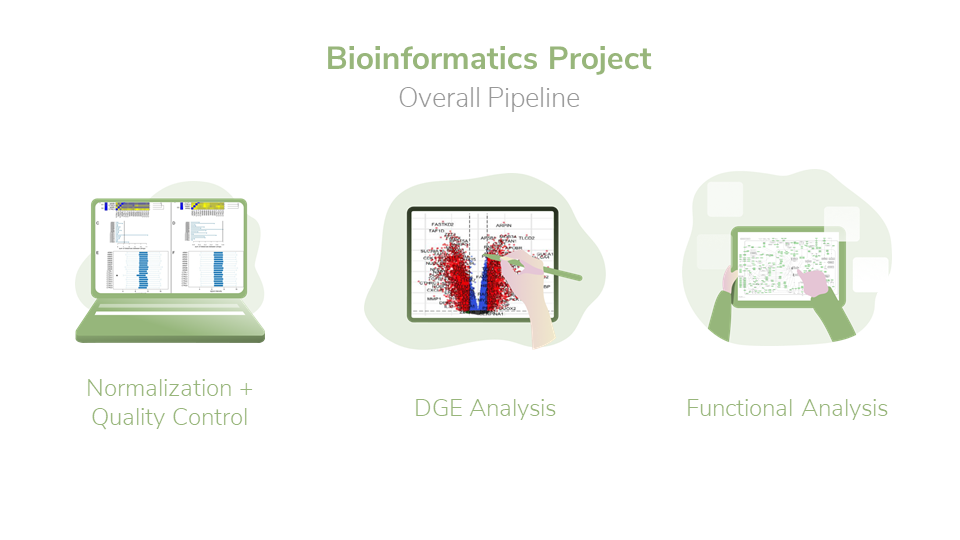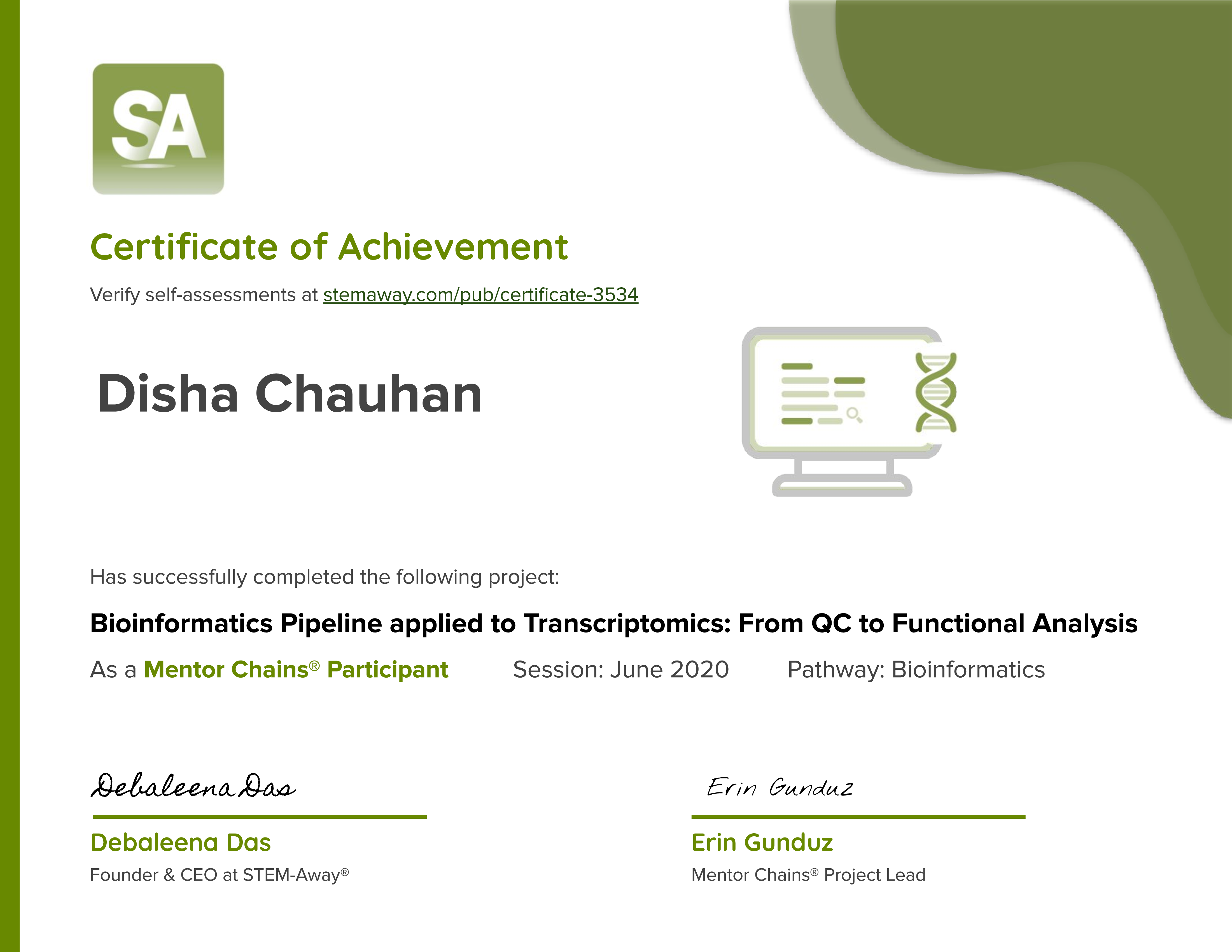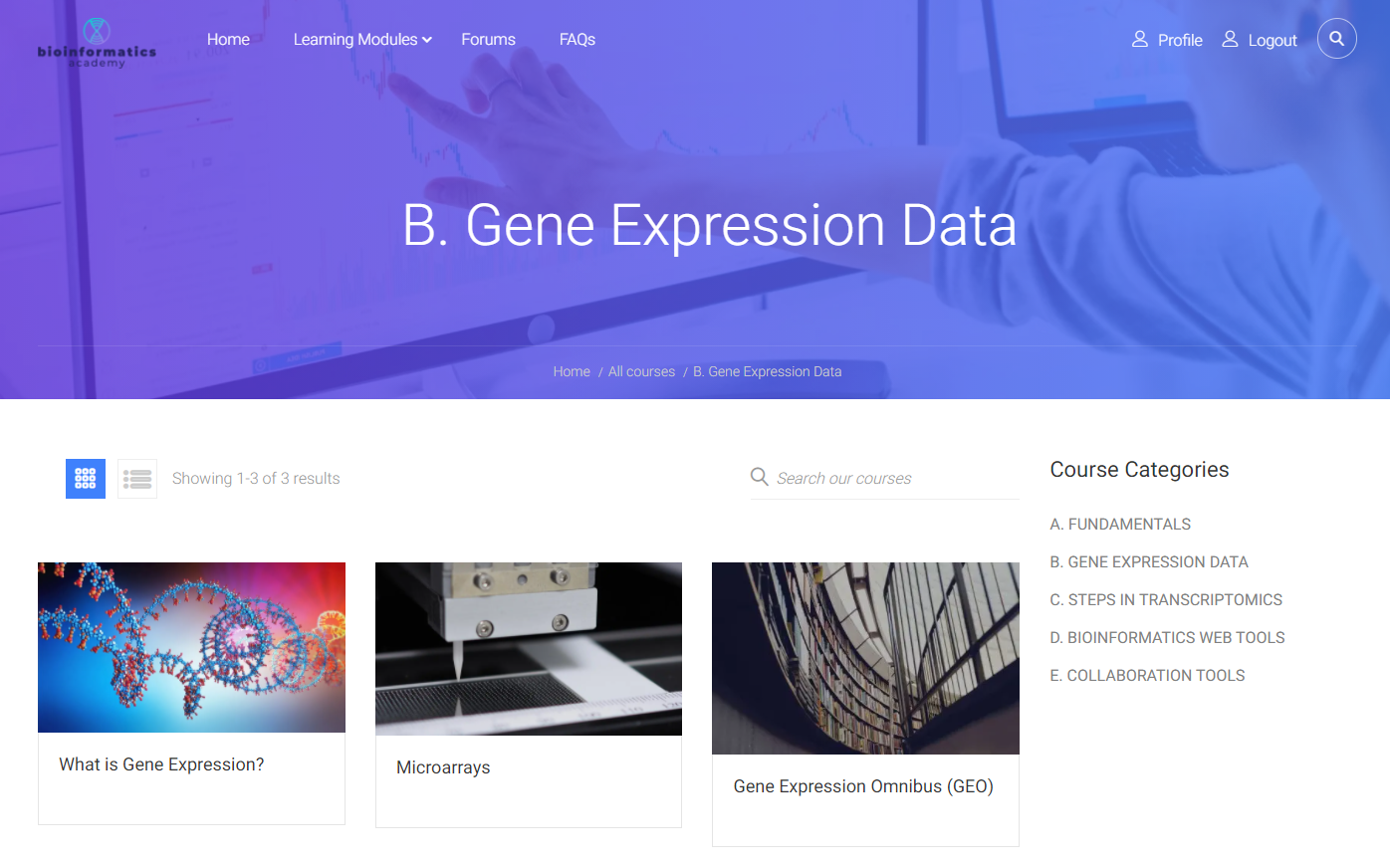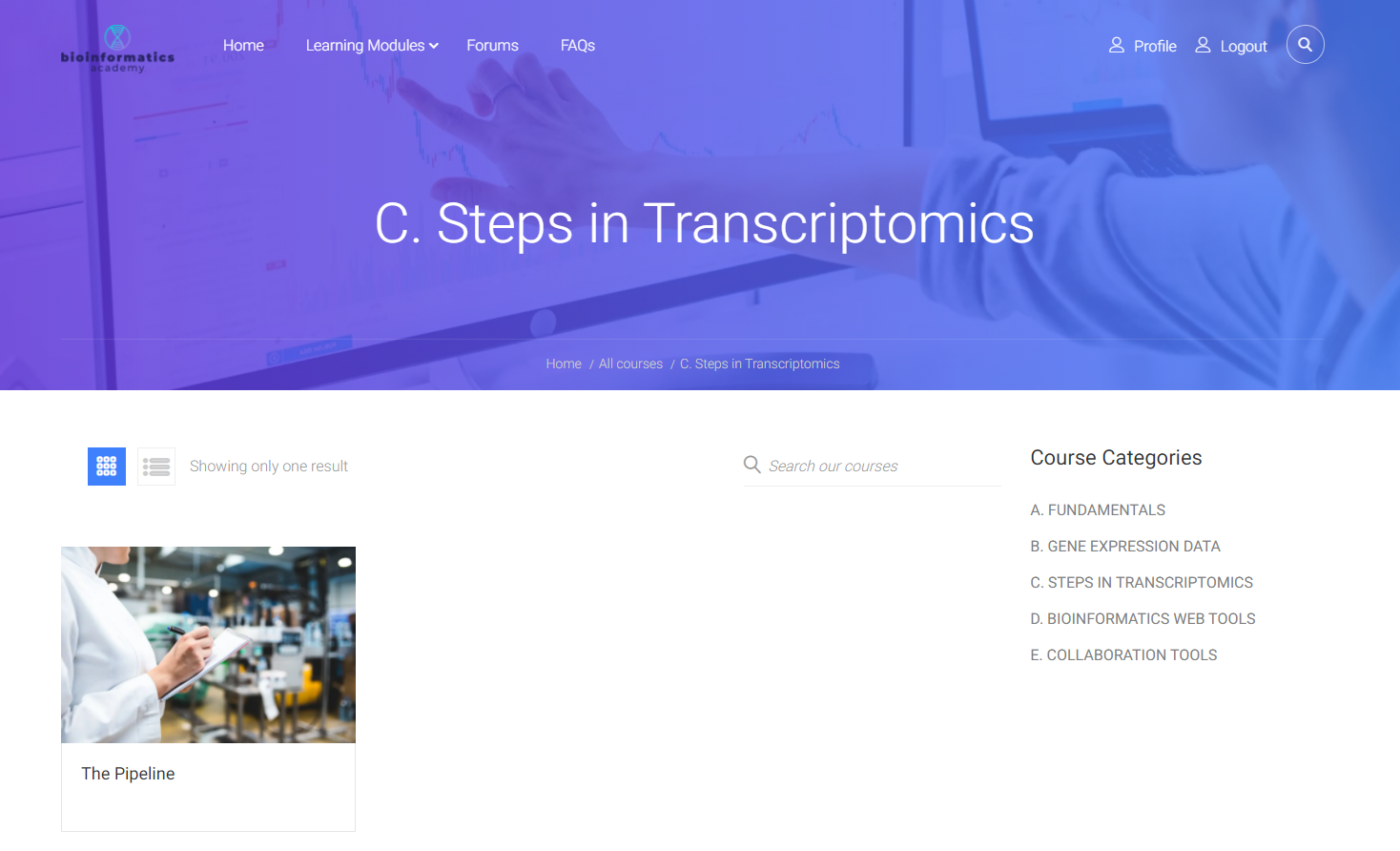
Transformative Approaches in Bioinformatics: Mastering Transcriptomics from Quality Control to Functional Analysis
“This challenging project offered me a profound immersion into the realm of Bioinformatics, specifically tailored to DNA microarray data analysis. Capitalizing on this experience, I have experimented with pipeline variations, thereby deepening my understanding of this field. To democratize access to this valuable knowledge, I founded ‘The Bioinformatics Academy,’ an online platform designed to incrementally build computational proficiencies until students can execute a complete bioinformatics pipeline.”
The Bioinformatics Academy:
Fall 2020 - Winter 2021
Launched a pioneering introductory course aimed at dismantling barriers to computational sciences, particularly for underrepresented groups. Access a sample module from the online workshop here. The course has gained traction across six educational institutions in the U.S. and India.
Key Achievements
Career Foundations: Cemented foundational skills in applying big-data analytics to spur innovation in combating formidable diseases like Alzheimer’s and cancer.
Public Speaker: Distinguished as a featured presenter at the STEMaway Showcase event, a congregation of top-performing high school students. (See video below).
Community Contributions: Leveraged acquired expertise to host workshops demystifying Bioinformatics and Data Science to high school students.
Core Competencies
Team Collaboration, Technical Presentations, Scientific Literature Analysis, Self-Evaluation, Time & Task Management, Problem-Solving
Technical Proficiency
Bioconductor R Packages and GEO Database:
Quality Control ( RLE boxplots, NUSE boxplots )
Data visualization ( PCA, Heatmaps, Volcano plots )
DGE Analysis ( Annotation, Gene filtering, Limma Analysis, Volcano plots )
Functional Analysis ( GO, KEGG, STRING database )
Tools and Software
GitHub, R Studio, Asana, GSuite
Project Specifics
Data Collection: Acquired datasets GSE18105 , GSE21510 from the GEO Database to emulate findings from this scientific publication: Construction and Analysis of a ceRNA Network Reveals Potential Prognostic Markers in Colorectal Cancer
Data Analytics: Employed Bioconductor packages for data normalization and outlier removal.
Statistical Methodologies: Conducted differential gene expression analysis through rigorous statistical methods.
Functional Analysis: Identified statistically significant gene-to-disease correlations, spotlighting potential prognostic markers for colorectal cancer.



